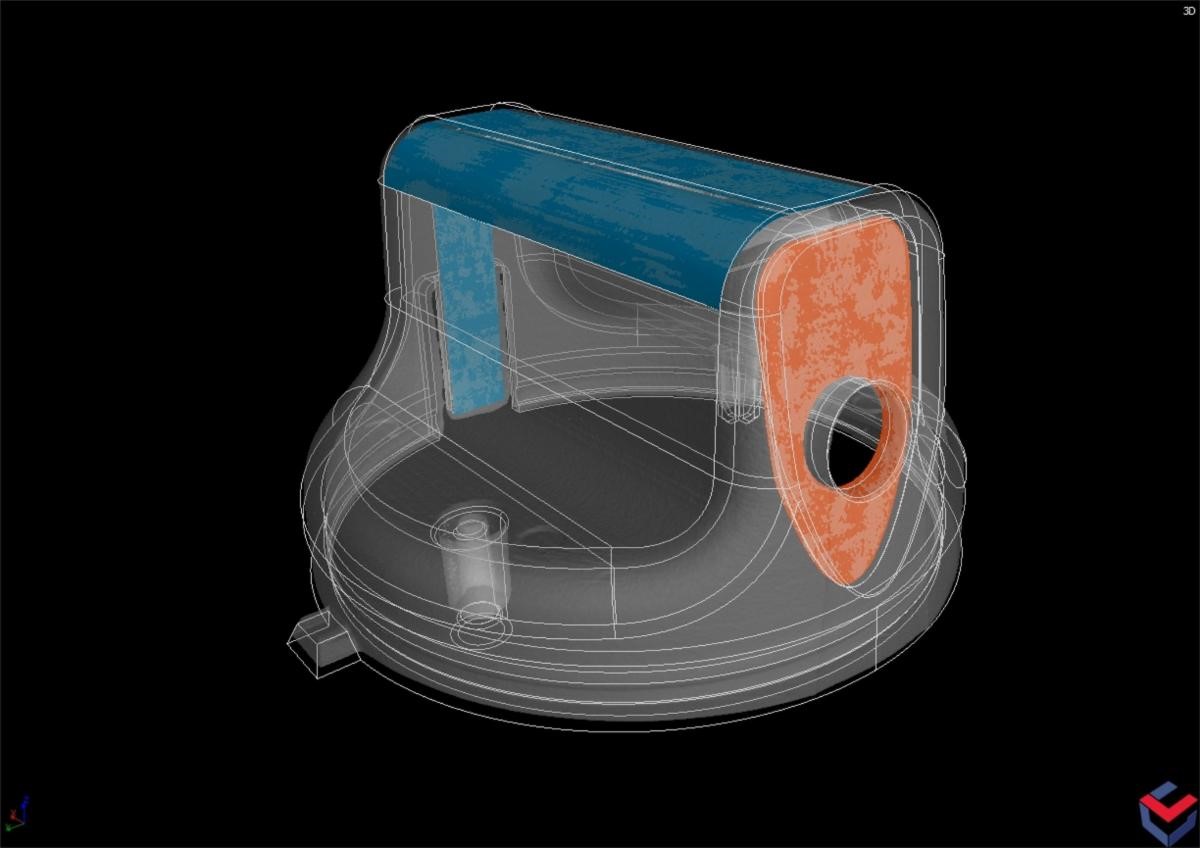Computed Tomography (CT) Data-Analysis Software
Computed Tomography (CT) Data-Analysis Software
Volume Graphics has announced its involvement with the Kunststoff-Institut in a second joint project on "Rapid Tooling" with companies from a wide range of industries. As a project partner, Volume Graphics brings expertise in quality assurance and process optimization to the team via its advanced industrial computed tomography (CT) data-analysis software.n

Volume Graphics has announced its involvement with the Kunststoff-Institut in a second joint project on "Rapid Tooling" with companies from a wide range of industries. As a project partner, Volume Graphics brings expertise in quality assurance and process optimization to the team via its advanced industrial computed tomography (CT) data-analysis software.
"Working on this project with Kunststoff-Institut and partners is very important to us," explains Christof Reinhart, CEO of Volume Graphics, "because we are convinced that industrial computed tomography can advance the future of rapid tooling. We have been following the topic of additive manufacturing in general and rapid tooling in particular for some time now and are working on solutions to increase prototype volumes, speed of design and overall part-and-process quality."
In tool and mold making, additive manufacturing (AM, aka 3D printing) is playing an increasingly important role in the quality and economics of high-efficiency metal production tooling with conformal cooling channels, and rapid prototyping of sample parts and plastic mold inserts. Mold inserts are a focus of the consortium's second project because of their critical importance in strengthening parts and/or encapsulating fabricated components.
The development phase of creating injection molded parts and inserts often requires the production of small-quantity prototypes. Two common approaches are, first, the modeling of sample "presentation" components using a low-end rapid process and, second, the more complicated method of using an aluminum molding tool, where the final part in the prototype production process is completed with an injection molding machine.
However, a new "rapid" method offers improved time and cost savings over aluminum: plastic molds—produced through industrial AM—that are then used for prototyping traditional plastic components with inserts. While the sample output is lower in plastic molds than in aluminum, plastic is proving more than sufficient for prototypes and is less expensive than metal.
Industrial CT has been an indispensable technology in tool and mold inspection for years, allowing non-destructive testing of manufactured components. Volume Graphics' software provides a much deeper look into CT results, revealing flaws that may be invisible to the naked eye, comparing as-manufactured parts to their original designs and simulating the performance of part geometries to guide design and/or manufacturing corrections. Comparisons between CT and CAD datasets reduce molding-tool corrections for defects and warpage to a minimum.





